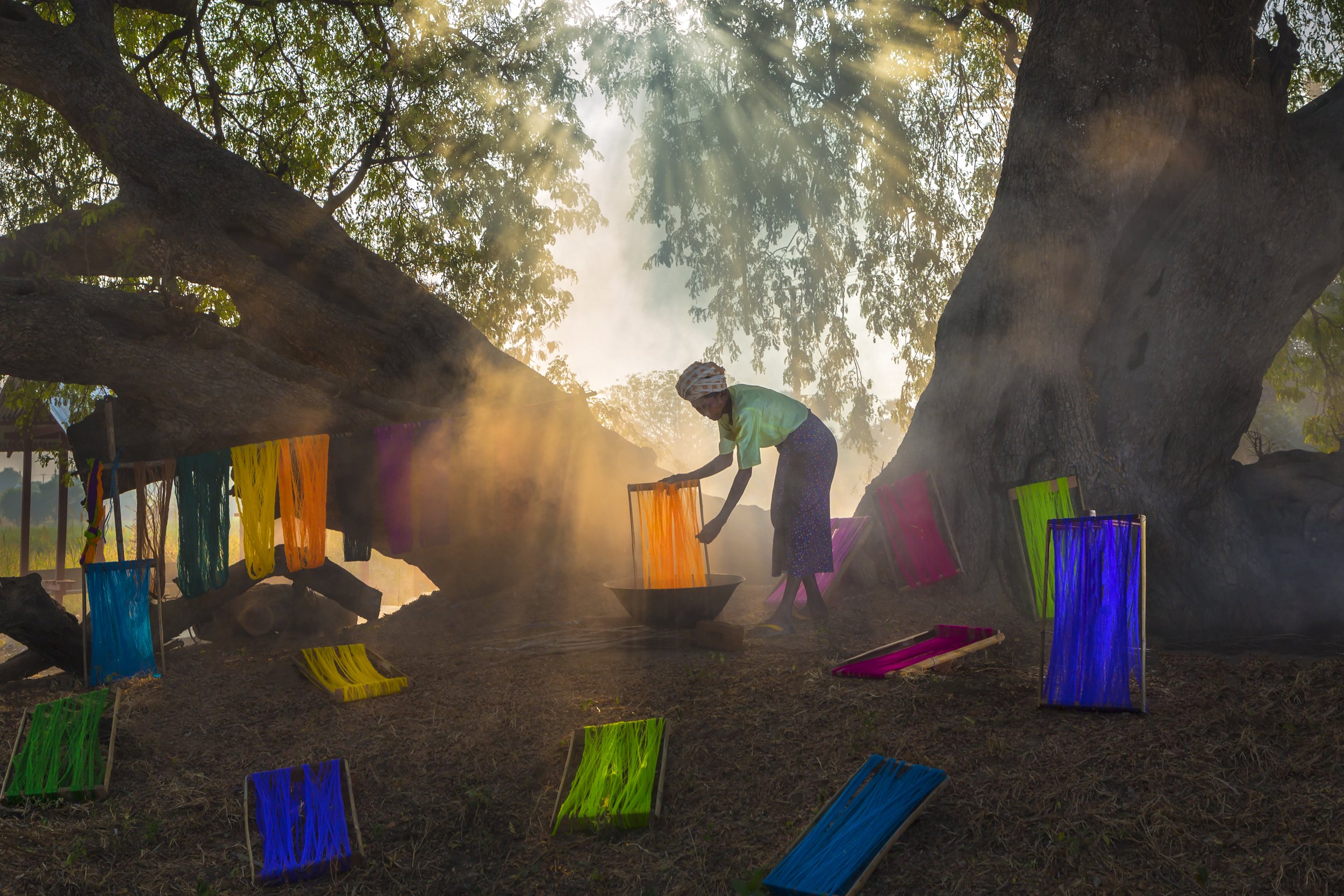Ex-Refugee Turned Advocate Shares Her Journey
By Daniel Amponsah, FCV Communications Team
Refugee youths are highly unlikely to attend college. UNHCR data sadly backs this up: only 1 in 100 refugee youth enrolls in tertiary education compared with nearly 40 in 100 of the world's youth, according to the agency's analysis. Yet Dr. Hourie Tafech, a young Palestinian woman born in a Lebanese refugee camp, defied the odds. Not only did she go to college, but she also earned a doctorate degree in global affairs. In 2020, Dr. Tafech was awarded the prestigious Margaret McNamara Education Grant in recognition of her work as a passionate advocate for refugee rights. In a conversation with Soukeyna Kane, Director, Fragility, Conflict, and Violence (FCV) Group, Dr. Tafech talks about her experience, her work, and about issues related to forced displacement.
Soukeyna: You spent your entire childhood in Lebanon as a Palestinian refugee, which I'm sure carried a lot of trauma and suffering. How did you turn that experience into becoming an advocate for refugees?
Hourie: I'm a third-generation Palestinian refugee, born and raised in Lebanon. It was my grandfather who was forcibly displaced during the 1948 Palestinian War. I must say the refugee situation might have improved a bit from 1948, but it is almost the same in terms of the inability to enjoy political and civil rights in Lebanon. When I was growing up, we could not afford to live outside the camp and were not allowed to be employed in certain jobs. Since the camps are considered autonomous zones, the government is not responsible for what happens inside. Groups in the camp clashed with each other frequently. Without going into details, I can say that growing up in the camp was traumatizing in terms of personal safety.
I am here today not because I had the power to transform my life. I believe my determination, skills and hard work, though important, would hardly be enough. I benefited from encountering the right people and opportunities along the way. I was one of the luckiest refugees who had opportunities and met people who believed in and took a chance on me.
Soukeyna: Given your experience and your research, what would say are the main challenges to the full integration of refugees into host communities and what do you think can be done about them?
Hourie: I think a key challenge is that we look at the refugee situation through a temporary lens. Palestinian refugees in Lebanon, for instance, have been in permanent temporariness' for 75 years. Another challenge is that host communities have their own development problems. The public perception toward refugees is often unfavorable. Blaming refugees and migration for host countries' every problem instead of focusing on substantive issues is often popular during political campaigns. It makes people hate refugees. Yet refugees should also bear some responsibility for their integration into host communities. Refugees must respect the laws and environment of host countries and refrain from meddling in politics. To better integrate refugees, I think we should have long-term plans with right policies, programs and institutions in place. We must also make sure that the public is well informed and political campaigns avoid spreading negativity about refugees.
Soukeyna: How can the World Bank or other multilateral organizations help with refugee integration?
Hourie: I think World Bank needs to be more vigilant with issues related to fraud and corruption when it supports governments for refugee integration. The multilateral organizations must make sure the money they provide to governments is used for its intended purpose. I think a strict transparency and accountability system will be critical to track how the money is spent and whether it is reaching the refugees and host communities.
Soukeyna: How do you stay optimistic working on this challenging issue?
Hourie: Believe me, I'm not always optimistic. I have moments when I get overwhelmed, feeling the challenge is too daunting. Yet I cannot help but be hopeful when I recall how access to higher education has changed my life, helping give my family a good life outside the camp. At the same time, I have helped my brothers, cousins and others to secure scholarships to go to university. I have realized that helping each other at the family and community levels could lead somewhere.
I am happy, too, with the progress made in getting refugees involved in important policy dialogues. Next week, I will be the first refugee representative in the official U.S. delegation to the Annual Tripartite Consultation on Resettlement—a UNHCR forum on global refugee resettlement—in Geneva. I wouldn't have imagined that eight years ago.
Dr. Tafech also had a question for Soukeyna
Hourie: Does your department include refugee voices and leadership, or refugee-led organizations when it comes to planning for FCV countries?
Soukeyna: On the refugee situation, our main counterpart is UNHCR because they help us assess protection frameworks when we design projects. When we plan on using the [IDA] Window for Host Communities and Refugees—the World Bank's support for durable solutions and socio-economic opportunities for refugee and host populations—we have consultations with the beneficiaries. At the corporate level, we engage NGOs, including refugee-led ones in policy dialogue.









